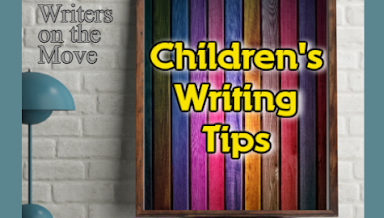By Karen Cioffi
Lately, I've notice that a number of clients don't understand the difference between a middle grade (MG) book and a young adult (YA) book.
So, let's go over a few of the basic differences.
Also, keep in mind that there is simple MG and upper MG as well as simple YA and upper YA.
THE READER AGE GROUP FOR EACH GENRE
MG books focus on readers in the 9-12 age range. According to editor Mary Kole, "That's really the sweet spot." (1)
Along with this, there is an upper middle grade group that caters to the 12-13-year-old reader. They're not quite ready for YAs, but they're more advanced than a 9 or 10-year-old.
There is also a lower middle grade group that caters to the 8-10 range.
Another factor to consider is the age of the protagonist.
Generally, the protagonist is between 11 and 12 years old as kids want to read up. They want the protagonist to be as old or older than they are.
If it's an upper MG, the protagonist is usually 12-13.
It is important that the protagonist isn't in high school, thus the 13-year-old limit for upper middle grade.
Young adult books focus on readers in the 13-18 age range.
This genre is also divided into lower (younger) YA and upper (older) YA.
For the younger YA readers, the protagonist is usually aged 14-15.
For older readers, the protagonist is usually 16-18 years old, but he shouldn't be in college.
I'm currently ghostwriting a YA where it starts with the protagonist at 14 and will go with him through high school to 18-years-old.
WHAT CAN AND CAN’T BE IN THE STORY
With middle grade, especially younger middle grade, the story should still be simple and it'd be a good idea to keep it to a single point-of-view.
For upper MG, you can use two points-of -view, but my preference is still only one.
While the subject matter can be more mature than chapter books, it should be age appropriate. Keep in mind that the MG age group is still young. They're not experienced or mature enough to handle complex or mature topics.
Things like fitting in, simple crushes, and all the other things that go into the middle school years are fine.
If you're writing for upper middle grade, things can get a bit more advanced. Kids are experiencing the world. They know what they're seeing on TV and other media. You still though want to avoid dark or explicit subject matter. And, profanity should be avoided.
With young adult, kids are becoming savvy. They're experiencing everything from terrorism, violence, pandemics, and so on.
YA stories can go into the darker and grimier side of life.
While you still want to tone it down a bit for the younger YA group, for the older group you can pretty much go into everything. Although, explicit sexual content should still be limited. This is not the place for adult content.
You can though, add two or more points-of-view.
THE WORD COUNT
MG
The word count for middle grade is 15,000 to 65,000. Although, my fantasy adventure, Walking Through Walls, is about 12,000 and is great for the reluctant MG reader.
The general parameters are:
- Young MG is usually 15,000 to 25,000
- MG is usually 25,000 to 45,000
- Upper MG is usually 45,000 to 65,000
There is also the fantasy or sci-fi MG which can have a higher word count. But, it's not advisable not to go beyond 85,000 words.
YA
The word count for young adult is 50,000 to 75,000.
For the younger YA, keep it on the lower end of the word count.
While these are just the basics of the differences between MG and YA, it gives you a general idea of where your story should fit.
According to an article at Writers Digest, "a book that doesn’t fit within the parameters of either age category is a book you won’t be able to sell." (2)
An example of this:
With the story I mentioned earlier that I'm ghosting, it started as a MG. But, as the client wanted older subject matter and wanted the protagonist to go through high school, I had to change it to a YA.
The client actually wanted the protagonist to go through college also, but I had to pull in the reins.
You need to stay within the genre limits.
I hope this clears up the major differences between middle-grade and young adult stories.
This was first published at:
https://karencioffiwritingforchildren.com/2020/06/28/middle-grade-versus-young-adult/
References:
(1) https://marykole.com/how-to-write-middle-grade-fiction
(2) https://www.writersdigest.com/write-better-fiction/the-key-differences-between-middle-grade-vs-young-adult
ABOUT THE AUTHOR
Karen Cioffi is an award-winning children’s author and children’s ghostwriter as well as the founder and editor-in-chief of Writers on the Move. She is also an author/writer online platform instructor with WOW! Women on Writing. You can check out Karen's books at:
https://karencioffiwritingforchildren.com/karens-books/
You can connect with Karen at:
LinkedIn https://www.linkedin.com/in/karencioffiventrice
Twitter https://twitter.com/KarenCV
Instagram: https://www.instagram.com/karencioffikidlitghostwriter/
MORE ON WRITING
Basics and Strong Writing
'Show' in Your Stories, but Sometimes it's Okay to 'Tell'







